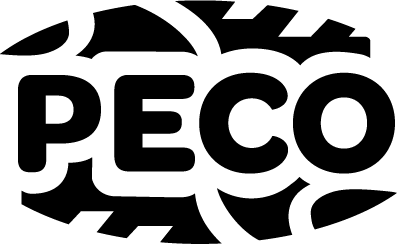Plastic Crisis 2022: Top 5 Things We Learned
Image design: Roger Brenninmeyer
This is an annual review capturing and highlighting the Plastics Crisis: what have we learned as a planet in the past year and where are we going in the years ahead. It is this more in depth research that helps guide policy and direction at PECO. As our mission suggests, we want to amplify the narrative about this planetary journey in conjunction with making great art from plastic waste.
1) Plastic is in our bloodstream
The first and probably most impactful thing we learned this year was the findings of Dutch researchers concluding that plastic is in our blood. Beyond all the mouth-dropping stats we share, this fact alone should be cause for pause and as such is the inspiration of our cover image this year.
2) Mother Nature is helping the plastics crisis. But humans, and mostly those supporting Big Oil, are persisting to deepen the same crisis. It's a frustrating push-pull situation
On one hand there's a "pull" by Big Oil to stay the course with traditional fossel-fuel solutions. but pressures are mounting against them as e-cars will become the norm by 2025. As a result, Big Oil is investing in (you guessed it), plastics!! Based on the presentations from COP27, we currently use 6% of oil for plastic production globally. This number will go up to 20% by 2050.
As the world is trying to curb emissions, plastics will double and triple by 2050
Also, plastics emit gases as waste. So, in our current landfills and dump sits, we emit approximately 850 million tonnes of CO2. But, by 2050 that number will go up to 8 billion tonnes of emissions.
3) This is a human issue, not a climate issue
So far we're just talking about what's in the air. We also need to keep in mind that the increase in plastic production will take place on land, near rivers that feed oceans. This is not an ocean issue - this is a human behaviour issue.
The more we dump and fail with our current recycling systems, the more plastic waste will continue to find its way into bellies of fish and marine life which is a tragedy unto itself. At COP27 there was talk about its impact on phytoplankton: the cellular matter that takes in and sequesters the majority of the earth's CO2. Using the smoker's metaphor is apt here if you think of phytoplankton like cilia that lines our lungs. The more we smoke the greater the chance of disease. And yet, despite our problem becoming three times the size by 2050, Big Oil keeps producing as if it were a good thing. Maybe that's why Coca-Cola was protested against being a sponsor for COP27 as they increase plastic production by 3% this year alone.
4) Multi-disciplinary institutions are coming on board
On the other hand, there's the push for new change and collaborations. The world is finally waking up due to the weekly weather realities that used to be seasonal or yearly occurrences. Listening to the plenaries, I happen to take note of the multiple UN agencies present. It was good to see the WTO present as they suggested lowering tariffs on imports with ecologically minded packaging. This is a major idea that could make the higher pricing of eco-packaging a more attractive and common-place solution.
But beyond packaging, it was agreed that change needs to be systemic and across the board. There seems to be clarity in the vision: global trade and movement of goods needs to continue but with less subsidy on fossil fuels and more emphasis on circularity.
5) PECO is going big with soft plastics
As for PECO, our learning this year is to really focus in on our local weak spot: soft plastics. Hard plastics here in Metro Vancouver are, for the most part, recycled, shred and reintroduced into the market as reusable plastic pellets. But soft plastics, on the other hand, must be driven by every resident to their local depot. The reclamation rates are obviously and drastically low.
With a mission to scale the size of out plastic sheets, we have concluded that doing so with soft plastics is not only the best solution environmentally, it's also focusing us on mastering or signature 'marble' style. The process is slower than what everyone else does. But this only underlines our case as an example for what every business should do: perfect their product or service within a circular process. Here's to a great year ahead with ample opportunity.

